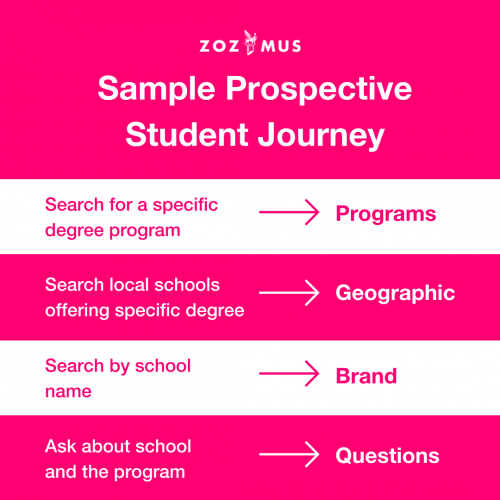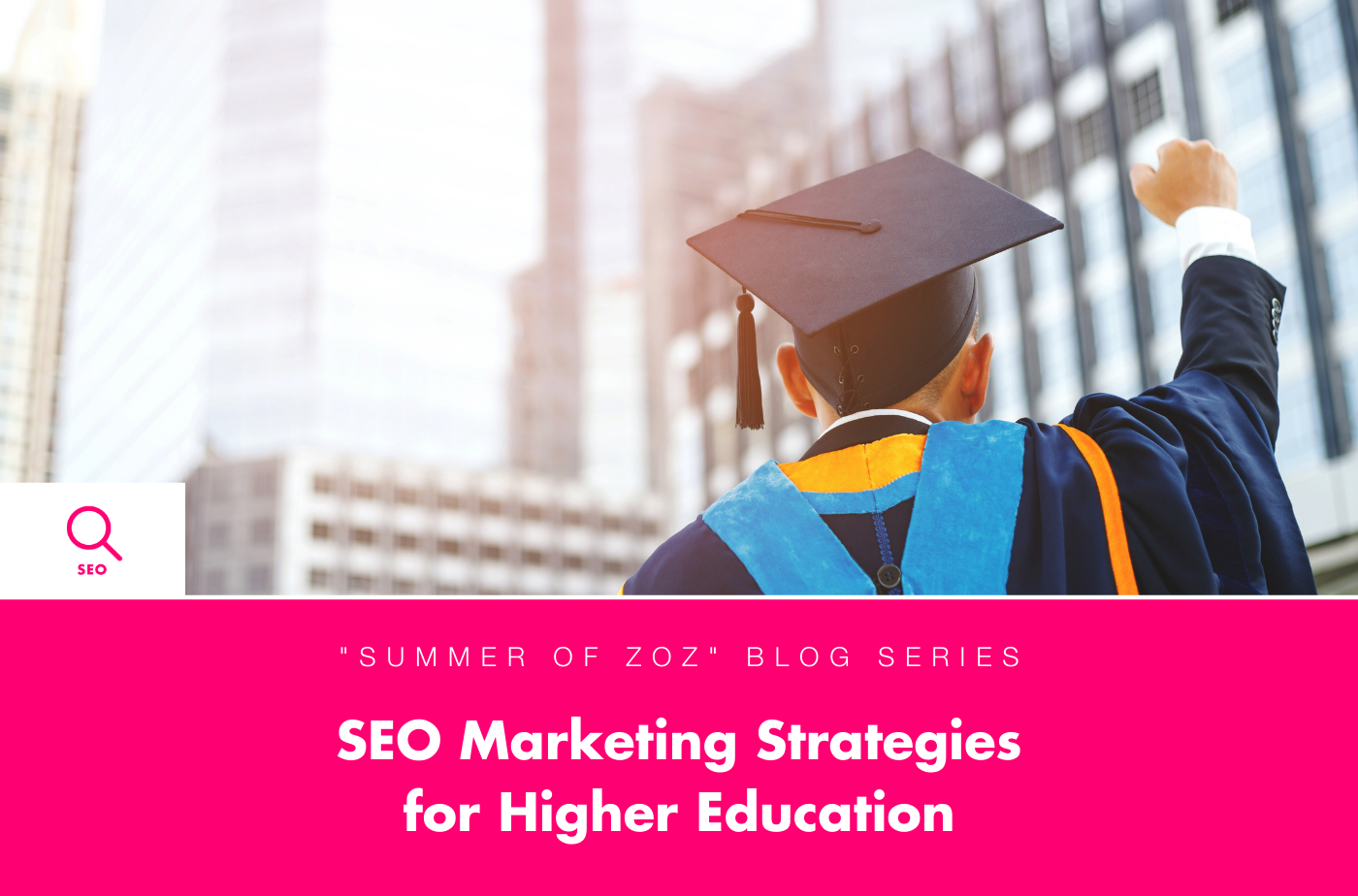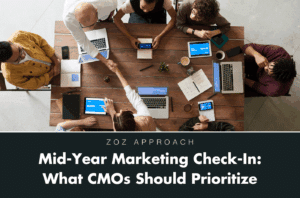In our next installment in our ‘Summer of Zoz’ blog series, Executive VP of Digital Marketing and Analytics, David Wilson provides insights into the new marketing strategies for higher education marketers. From the changing landscape of paid search to the focus on marketing to parents/guardians, David analyzes current campaign strategies and how Zozimus can help your higher education marketing team achieve your goals in an ever-changing marketing landscape.
Marketing Strategies for Higher Ed
With the sharp increase in CPC (cost per click) costs over the last three years, we’ve seen that CPC’s have risen 152% since COVID started. It is no wonder that colleges and universities are turning to SEO strategies as a way to balance out the higher costs to paid marketing campaigns.
SimilarWeb published a report that showed college admissions traffic for fall 2021. Their data showed that Purdue University leads the Top 100 Colleges by Admissions Site Rankings with 2x the number of visitors as CUNY Baruch College. This should not be a surprise to anyone who has watched what has been happening in Lafayette, Indiana the last couple of years.

In 2020, Purdue’s senior vice president of marketing and communications, Ethan Braden, was named Marketer of the Year for Higher Education by the American Marketing Association. Purdue Marketing and Communications team was named Marketing Team of the Year for Higher Education by the AMA.
Faced with a limited media budget, how can a school compete better online? That is a question that is being asked at campuses across the country at the moment. One solution is Search Engine Optimization (SEO).
Creating an Organic Search Strategy
The first step in creating an organic search strategy is to develop a keyword list. This list is composed of keywords and key phrases that are important to you and your prospective student audience. If you have one, your existing paid keyword strategy is a great jumping off point, as you can quickly identify keywords that already resonate with your audience and generate engagement and conversions.
A great resource for campaigns is Google Search Console Insights. It shows you both the high ranking keywords, as well as the trending keywords from your website.
While we are focused on the keywords that will bring people to your website, your main goal is for a website visitor to complete an inquiry form or start their application.
With your goal in mind, degree or program pages should have a clear call to action. Preferably an embedded information request form right on the page, and not a link to another page.
Not all prospective students are ready to fill out a form on their first visit to your website, as they might want to learn more before taking the next step. Your website should of course have a clear pathway to other relevant information. We cannot overstate the importance of a solid information architecture.
Creating a Keyword Strategy
We find that the best keyword strategy for colleges can be broken into five categories:
- Brand
- Programs
- Geographic
- Questions
- Parents/Guardians
The typical prospective student journey looks something like this:

Focusing on Programs
This is where most students begin their journey. They are interested in a specific major, and they want to know which universities offers that program.
As we have shown, programs are the starting point for the student’s journey, and colleges that do not show up in these initial searches are usually not included when the student moves into their consideration phase.
The key to success with program related searches is understanding what students are searching for and building content around those topics.
For example, in the image below, Purdue University could see that prospective students were searching for information on their data science program and wanted to know the reputation of that program. Is it ranked well nationally?

Purdue then developed content on their websites specifically around these rankings and the reputation of their data science program. This content was well optimized, allowing Purdue to rank at the top of page 1 on Google for this program, ensuring that they remained in the consideration pool of prospective students.

Geographic Keywords
Geographic SEO refers to keywords that are location specific. For example, “data science program in Boston”.
These geographic searches are often overlooked by colleges, but our research shows that not being visible for location based searches means a school will not been seen in searches, therefore not making it into the consideration phase for prospective students.
The optimal position for higher education is to have Google associate your program with a geographic search as seen with Boston University:

We can also see the power of Berkley’s strategies coming through search, which is the number one data science program in the country according to US News and World Report.
Branded Keywords
Branded keywords are the searches that typically include your school’s name + a term. For example, ‘Purdue University Acceptance Rate’ or ‘Purdue University Tuition’. The important part of the organic search strategy is understanding what page you want the prospective student to land on based on your student decision journey. Is the landing page optimized for their search?
An example of branded searches for Purdue University can be seen below.

Targeting Prospective Students
As seen in the Purdue data science ranking query below, Google includes a feature called “People Also Ask” within the Search Result Page (SERPS).
Understanding the questions that prospective students and their parents ask and providing answers to those relevant questions, is a great way for a school to be highly visible on Google.
One way to find the questions that are being asked is to use an aggregator tool like Answer the Public.

The best feature about Answer the Public, is all the data is downloadable, making it a great way to research new content opportunities.
Marketing to Parents/Guardians
This is probably the most overlooked segment by schools. Almost all of the marketing focus is on the prospective High School student, with universities typically devoting little or no attention to the parents and/or guardians of those students.
We recently released a blog titled “Marketing To Parents In Higher Education” that addresses this topic.
However, many universities overlook a parallel omni-channel strategy for one of the most critical sources of influence for students: their parents/guardians.
Initial results have proven successful enough that we have begun the process of creating formal digital marketing budgets specifically for parents/guardians across the funnel, thereby increasing volume of interest and amplifying the effects of parent direct marketing tactics across other channels.
Let's Connect!
BOSTON, MARS




